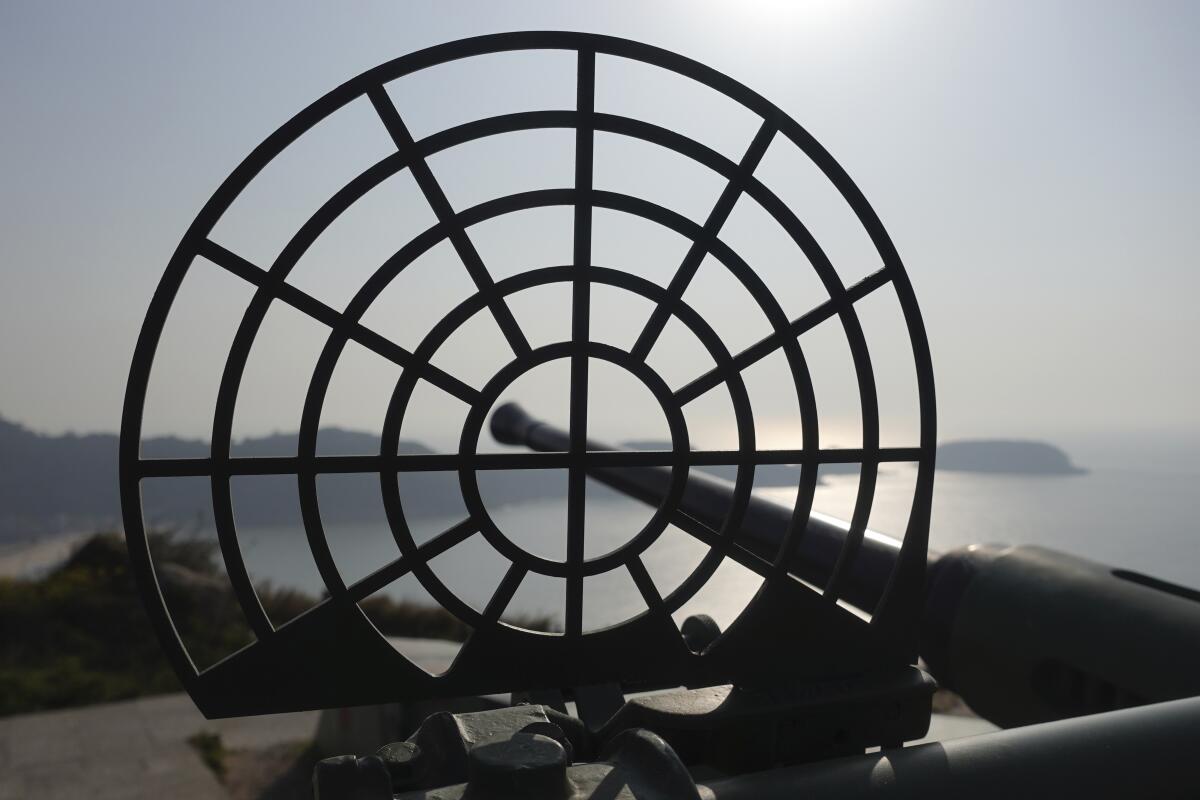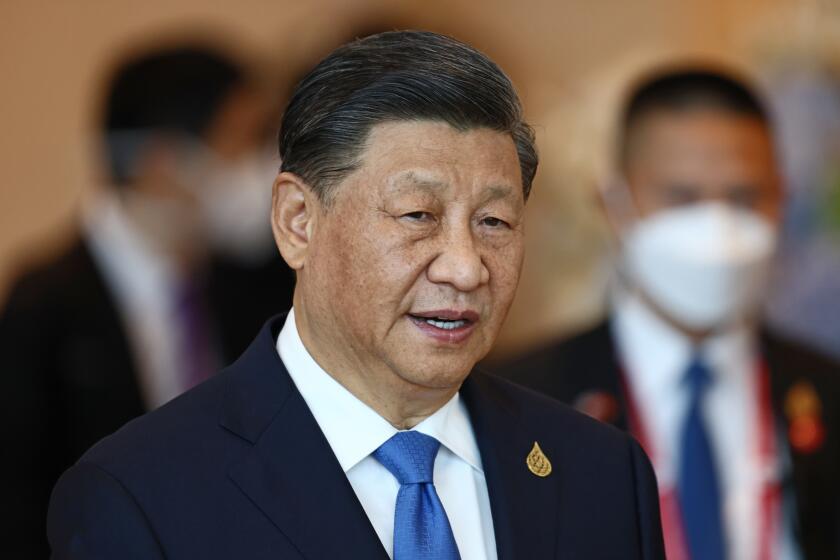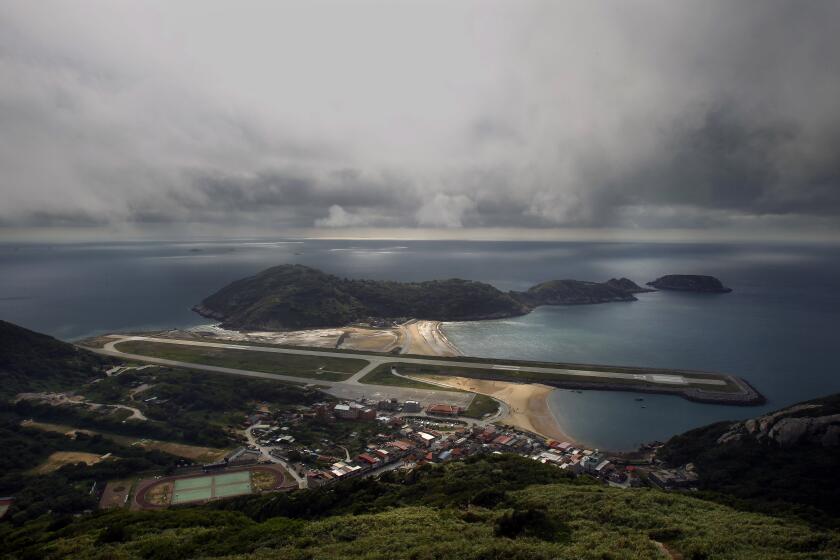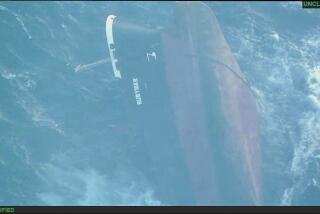Taiwan suspects Chinese ships of cutting outlying islands’ internet cables

NANGAN, Taiwan — In the past month, bed and breakfast owner Chen Yu-lin had to tell his guests he couldn’t provide them with the internet.
Others living on Matsu, one of Taiwan’s outlying islands closer to mainland China, had to struggle with paying electricity bills, making a doctor’s appointment or receiving a package.
For connecting to the outside world, Matsu’s 14,000 residents rely on two undersea internet cables leading to Taiwan’s main island. The National Communications Commission, citing the island’s telecom service, blamed two Chinese ships for cutting the cables. It said a Chinese fishing vessel is suspected of severing the first cable some 31 miles out at sea. Six days later, on Feb. 8, a Chinese cargo ship cut the second, the NCC said.
Taiwan’s government stopped short of calling it a deliberate act on the part of Beijing, and there was no direct evidence to show the Chinese ships were responsible.
The islanders in the meantime were forced to hook up to a limited internet via microwave radio transmission, a more mature technology, as backup. It means one could wait hours to send a text. Calls would drop, and videos were unwatchable.
“A lot of tourists would cancel their booking because there’s no internet. Nowadays, the internet plays a very large role in people’s lives,” said Chen, who lives on Beigan, one of Matsu’s main residential islands.
China’s foreign minister has warned that Beijing and Washington are headed for ‘conflict and confrontation’ if the U.S. doesn’t change course.
Apart from disrupting lives, the loss of the internet cables, seemingly innocuous, has huge implications for national security.
As the full-scale invasion of Ukraine has shown, Russia has made taking out internet infrastructure one of the key parts of its strategy. Some experts suspect China may have cut the cables deliberately as part of its harassment of Taiwan, the self-ruled island it considers part of its territory, to be reunited with the mainland by force if necessary.
China regularly sends warplanes and navy ships toward Taiwan as part of tactics to intimidate the island’s democratic government. Concerns about a Chinese invasion, and Taiwan’s preparedness to withstand it, have increased since the war in Ukraine.
The cables had been cut a total of 27 times in the last five years, but it was unclear which country the vessels hailed from, based on data from Chunghwa Telecom.
The CIA director says U.S. intelligence shows that President Xi Jinping has instructed China’s military to ‘be ready by 2027’ to invade Taiwan.
Taiwan’s coast guard gave chase to the fishing vessel that cut the first cable Feb. 2, but it went back to Chinese waters, according to an official who was briefed on the incident and was not authorized to discuss the matter publicly. Authorities found two Chinese ships in the area where the cables were cut, based on automated identification system data, similar to GPS, which shows a vessel’s location.
“We can’t rule out that China destroyed these on purpose,” said defense expert Su Tzu-yun of the Institute for National Defense and Security Research, a government think tank, citing research that only China and Russia had the technical capabilities to do this. “Taiwan needs to invest more resources in repairing and protecting the cables.”
Internet cables, which can be anywhere between about 0.8 inches to about 1.2 inches wide, are encased in steel armor in shallow waters, where they’re more likely to run into ships. Despite the protection, cables can get cut quite easily by ships and their anchors, or fishing boats using steel nets.
Even so, “this level of breakage is highly unusual for a cable, even in the shallow waters of the Taiwan Strait,” said Geoff Huston, chief scientist at the Asia Pacific Network Information Center, a nonprofit group that manages and distributes Internet resources such as IP addresses for the region.
Ham radio, a niche hobby among older Taiwanese, has reemerged as a potential wartime tool as China’s military aggression grows.
Without a stable internet, coffee shop owner Chiu Sih-chi said seeing the doctor for his toddler son’s cold became a hassle because first they had to visit the hospital just to get an appointment.
A breakfast shop owner said she lost thousands of dollars in the last few weeks because she usually takes online orders. Customers would come to her stall expecting the food to be ready when she hadn’t even seen their messages.
Chunghwa Telecom has set up microwave transmission as backup for the residents. Broadcast from Yangmingshan, a mountain just outside of Taipei, Taiwan’s capital, the relay beams the signals about 125 miles across to Matsu. Since Sunday, speeds were noticeably faster, residents said.
Wang Chung Ming, the head of Lienchiang County, as the Matsu islands together are officially called, said he and the legislator from Matsu went to Taipei shortly after the internet broke down to ask for help, and was told they would get priority in any future internet backup plans.
Taiwan says it found a Chinese weather balloon, carrying equipment registered to a state-owned electronics company, on one of its outlying islands.
Repairing the cables is expensive, with an early estimate of about $1 million for the work of the ships alone.
For now, the only thing residents can do is wait. The earliest cable-laying ships can come is April 20, because there are a limited number of vessels that can do the job.
More to Read
Sign up for Essential California
The most important California stories and recommendations in your inbox every morning.
You may occasionally receive promotional content from the Los Angeles Times.














